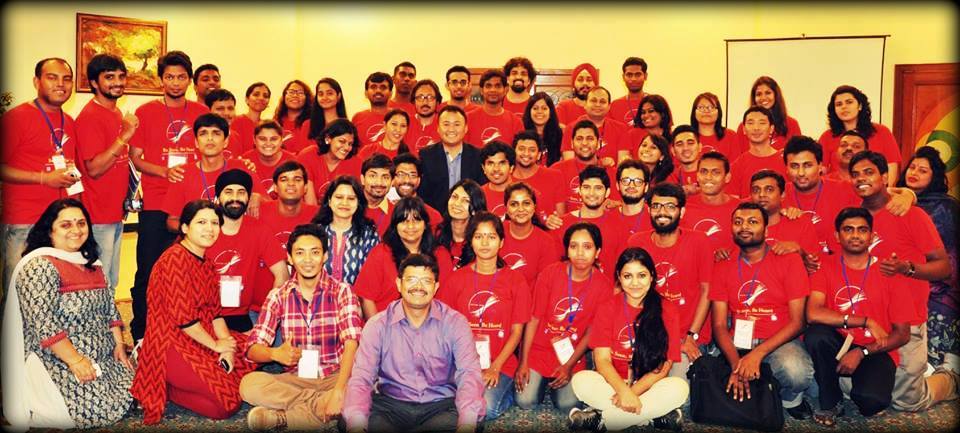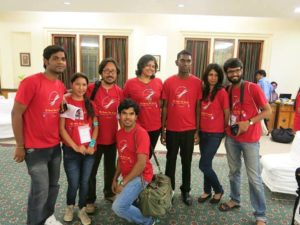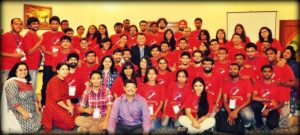ASIAN YOUTH LEADER SUMMIT@ NEW DELHI

 Asia Youth Leaders’ Summit-2013 with the theme “Be Seen, Be Heard” was held on 07-09 October, 2013 at New Delhi, India. The partners of the summit were British Council, New Delhi, India, Commonwealth Youth Program Asia Centre ( CYP Asia Centre) and Rajiv Gandhi National Institute of Youth Development ( RGNIYD)
Asia Youth Leaders’ Summit-2013 with the theme “Be Seen, Be Heard” was held on 07-09 October, 2013 at New Delhi, India. The partners of the summit were British Council, New Delhi, India, Commonwealth Youth Program Asia Centre ( CYP Asia Centre) and Rajiv Gandhi National Institute of Youth Development ( RGNIYD)
The summit participants were Youth leaders, civil society organizations, Policy makers, Bilateral and multilateral organizations and Media. The participants were from various countries like Bangladesh, Brunei, India, Pakistan, Maldives, Malaysia, Singapore and Sri Lanka
Mr.Dinesh Gajendran Represented India and delivered session “Success Stories of Young People in Youth Forum” and also he elected for the Strategy action team for Asia Youth Council on 2014.
The proposed summit had the following components:
• One day seminar on Youth Participation: opportunities and challenges
• One day round table on sharing of good practices by youth leaders
• One day capacity building workshop on youth leadership and participation
Goal:
To create an enabling environment for youth participation to ensure meaningful engagement of youth in decision making process.
Objectives
• To discuss and debate about various challenges and scope for youth participation and engagements in democracy, governance and development.
• To facilitate horizontal sharing of good practices on youth participation structures/mechanisms in the region.
• To advocate for significance and relevance of youths participation in decision making process.
• To facilitate a platform for young people to have face to face interaction with the policy makers.
• To formulate key recommendations to create and enabling environment for meaningful engagement of young people in democracy and development.
• To advocate with the stakeholders for strengthening/institutionalizing a democratic mechanism for youth participation by establishing National Youth Council
• To disseminate British Council and CYP Asia Centre research reports.
• To disseminate the draft constitution of the Commonwealth Youth Council with the stakeholders.
• To empower youth as an agent of change by developing their capacity on youth leadership to ensure their meaningful engagement.
Outcomes:Broader understanding about young people’s contributions to democracy and development.
• Broader understanding about the issues and challenges of youth participation in the region.
• Broader understanding about young people’s contributions to policy and decision making at national, regional and global society and development agenda
• Broader understanding about the stakeholders’ commitment for institutionalising a democratic mechanism for youth participation by strengthening/establishing National Youth Council.
• Enhanced knowledge about good practices on structures and mechanism for youth participation in the region. .
• Enhanced leadership skills of the youth leaders to influence policies and programs related to youth and their communities and in creating an enabling environment for youth participation.
• Recommendations to policy makers for enhance engagements of youth participation in decision making structures and other bodies
Methodology used in the summit was:
• Presentation
• Lectures
• Discussion
• Games
• Brainstorming
• Group exercise
• Video Clippings
• Role plays
• Panel discussion
 Brief profile of the organizing partners:
Brief profile of the organizing partners:
The British Council is the United Kingdom’s international organisation for educational opportunities and cultural relations. The British Council connects people worldwide with learning opportunities and creative ideas from the UK and other countries. In India British Council operates as a division of the British High Commission and have offices in 4 main metros as well as a network of 9 libraries. Through our centers and programs we strengthen the cultural relationship between India and the UK. We ensure that our programs in English and Exams, Arts, Education and Society make an impact. An important strand of our work in Education and Society focuses on engaging youth across India in a range of programs which develop their skills in leadership and global citizenship. Through this work we seek to become India’s partner of choice in youth policy development and build a consistent training and networking offer for young people, so that they can link with their counterparts in South Asia and the UK.
Commonwealth Youth Program Asia Centre:
The Commonwealth Youth Program (CYP) which came into being in 1973 pursuant to a mandate of CHOGM is the youth development and empowerment wing of the Commonwealth Secretariat and its only decentralized program administered through 4 Regional Centers. It is one of the pioneer international and intergovernmental agencies devoted entirely to youth development. The CYP Asia Centre located in Chandigarh, India is responsible for implementing youth development initiatives and programs in eight Commonwealth Asian member countries, namely, Bangladesh, Brunei Darussalam, India, Malaysia, Maldives, Pakistan, Singapore and Sri Lanka. The Commonwealth Youth Program (CYP) has worked over the years to engage and empower young people to enhance their contribution to development through effective participation. Advocating for and supporting the establishment of structures such as National Youth Councils to facilitate and promote youth participation has been one of the important planks of this strategy. The mechanism of Regional Youth Caucus and the Pan-Commonwealth Youth Caucus through which designated country representatives used to participate in meetings of senior officials and the Youth Ministers is another example of the CYP’s efforts towards promotion of youth participation. More recently, youth from the Commonwealth countries were provided with the opportunity of having a dialogue with Ministers and the Heads of Governments on the sidelines of their meetings through what has been known as the Commonwealth Youth Forum. Participation of youth leaders in the Commonwealth Election Observers’ Mission has also been another notable example in this direction.
Visit: http://www.thecommonwealth.org
Reference: https://www.facebook.com/106167902764581/photos/?tab=album&album_id=601801929867840


